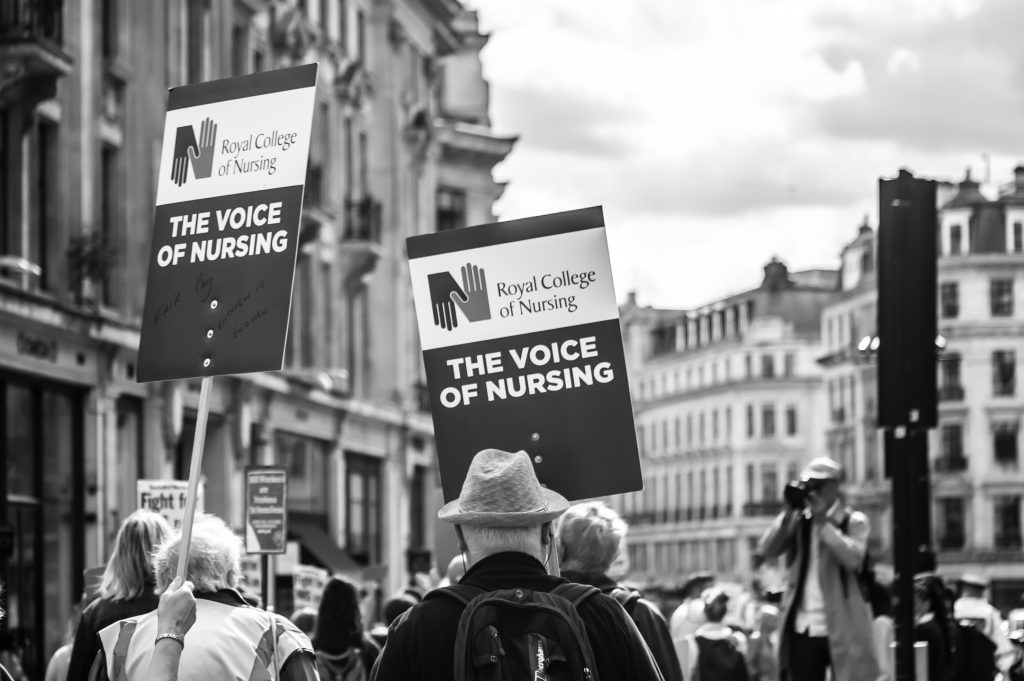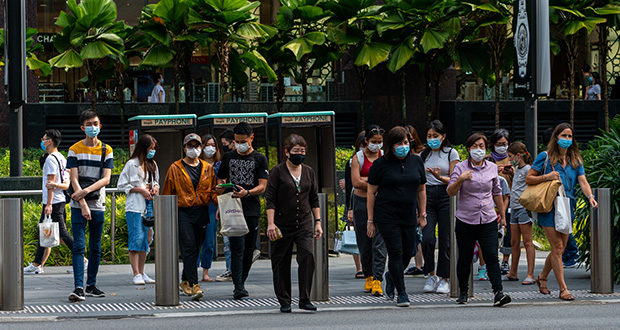News of impending strike action has left nurses feeling “bittersweet” – proud that the profession is ready to fight for change, but disappointed and saddened that it has reached this point.
Floods of nurses have turned to social media to share with Nursing Times their thoughts and feelings about the Royal College of Nursing’s UK-wide strike ballot results.
“Incredibly said it has come to this, but things simply cannot continue as they have”
Apprentice nurse
It was revealed on Wednesday that members of the RCN had secured a mandate for strike action across the majority of NHS employers in the UK.
This includes all NHS employers in Scotland and Northern Ireland, all but one in Wales and 130 in England.
The RCN has said that industrial action was expected to take place before the end of this year and that it now had a mandate to organise strikes until May 2023.
In the wake of the ballot result, Nursing Times has asked members of the profession who use the social media site Twitter for their reaction.
Responding to Nursing Times’ request yesterday afternoon, one nurse said they were experiencing an “overwhelming feeling that’s hard to describe”.
“I’m proud of my colleagues who have voted to say ‘we must have change and enough is enough’, but I’m also saddened that we’ve got to this point,” they added.
Expressing a similar view, another nurse said: “I have mixed feelings. I absolutely support all of my colleagues [but] I am devastated to have been put in this position by the government and I feel dreadful about the clinic appointments I will have to cancel, knowing full well how long people have waited for them.”
Some nursing staff described feeling “bittersweet”, including one apprentice nurse who said: “[I’m] incredibly sad it has come to this, but things simply cannot continue as they have.”
It is not yet certain how services will be impacted by potential strike action in the coming months, but according to the RCN, any action will follow the “life preserving care model”, where emergency care and urgent diagnostic procedures and assessments will remain.
In order to maintain this, the college said service provision should be similar to that supplied on Christmas Day.
Many nurses responding to the ballot results have cited the relentless workplace challenges and pressures they are enduring and warned of the ongoing negative impact of record nurse vacancies.
One respondent, who said she had been a learning disability nurse for almost 40 years, said vacancies in her branch of nursing had “never been so high”.
“The impact of this on one of the most vulnerable groups of people will be significant,” she said.
She added that, while strike action was a “last resort”, it was “necessary to protect care”.
Nursing staff have also gained the support of student nurses, with one respondent describing strike action was “desperately needed”.
“To not be able to learn as a supernumerary due to severe staff shortages and burnt-out staff is not a positive experience. I just hope nursing staff get what they deserve, especially as they’re now at a 20% real-term deficit,” she said.
In recent months Nursing Times has increasingly reported on the financial hardships faced by nurses, including those turning to food banks, struggling to pay their bills or leaving the profession altogether for better-paid jobs elsewhere.
A nurse from overseas who has worked for more than six years in the UK emailed Nursing Times about how they were “struggling to make ends meet”.
“I am happy nurses voted ‘yes’ to strike action,” the nurse said. “Maybe as nurses we will finally be heard and get paid what we deserve.
“Maybe I will finally be able to stay at home on my days off to be with my child instead of working a second job to keep a roof over our heads, food on the table, [and] the lights and heating on in the house.”
However, another theme has been emerging from responses across the profession that focuses on the ballot result in some areas of England.
Many nurses have been left disappointed that, despite voting for strike action themselves, the required thresholds were not met at their employer and so legal action cannot take place.
“I am deeply disappointed that I don’t get to strike, and ashamed that others will fight on my behalf whilst I get paid”
A nurse
For strike action to be mandated, there must be a 50% membership turnout. In Scotland and England additional requirements mean 40% of the membership must also vote in favour of strike action.
One nurse who contacted Nursing Times said they had voted to strike, but that the threshold in their employer was missed by 100 votes.
“I am deeply disappointed that I don’t get to strike, and ashamed that others will fight on my behalf whilst I get paid,” they said.
“Neighbouring trusts that my service works with will be striking, colleagues and friends will be striking, and I will do nothing.
“I hope there is something more I can do to support the strike and will be looking into this.”
They said the result “isn’t a win for me”, adding: “I am so upset.”
Other nurses, who will also not be able to strike, have said how they intend to support their striking colleagues through other means.
One nurse said: “I feel happy for my colleagues that will be able to strike. I will request annual leave so that I can support those striking since I may not get to.”
Some nurses have expressed how they chose not to vote for strike action, including one nurse who from looking at other unions felt industrial action could be “divisive”.
The nurse said they felt strikes “bring misery and bad feeling”. “I’m not sure our profession can cope with much more of this given the last two years,” they added.







